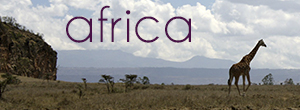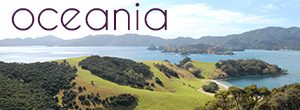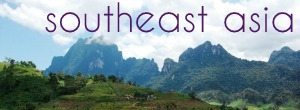We awakened the next morning on the floor of an old military truck. Two mattresses had been laid down for five of us to sleep on after arriving back at our hostel in Nairobi only to discover it was full – of missionaries. Despite this, the warm and honest staff wanted so much to accommodate us that the cook insisted he would absolutely find another place to stay and we were welcome to stay in his home. Moments later, we discovered the old military truck, missing at least one wheel and propped on a few cinderblocks, was the home to which they were referring. Surprisingly enough, it was quite comfortable and after a long day biking uphill in the hot sun through the aptly named Hell’s Gate National Park, we were all too exhausted to care anyway.

The Chef’s Truck at Milimani
We took our turns showering the dusty day from our worn skin and devoured several more grilled cheese and tomato sandwiches, washing them down with ice cold Tusker. One of the regulars at Milimani invited us into his room and shared several joints among us and one by one we each turned in. Mladen, Justin, Janine, and I made our way to our military mattress bed and shut out the lights. In the darkness I found Mladen and holding his familiar body we opened our mouths close to one another, teasing but never touching lip to lip, trembling with wanting. I desired him as much as ever and knew I would never be able to keep myself from fucking him in the ten remaining days of our trip, but for tonight the easy feel of his body on mine was enough. We fell asleep wrapped tightly in one another knowing we were to awake again before the dawn to continue on our journey from Nairobi, Kenya to Arusha, Tanzania and on to the great safari.
The alarms went off at five a.m. and we slowly dragged our bodies, heavy with ache, out into the humid darkness. Gathering our shit and brushing our teeth, Mladen rolled a joint and we puffed it sleepily behind the massive truck as we finished packing our bags for the long road ahead. The sun was rising as we walked towards the center of the city to the bus station to make our way to Tanzania and we got our tickets and onto the bus without a hitch. This was a rare exception on this trip.
As the packed bus heaved itself down the road to Arusha, my scent began to mix with the potent odor of the bus. I was barely able to read what I was writing as the bus violently shook, hurdling over the rocky and barely paved road. My legs were sticky with sweat and soda, which only reminded me of the ice cold Fanta we had at the Tanzanian border, and how far away that seemed. The scenery drew behind us in long stretches of trees and dust, interrupted only by the occasional town. These half mile stretches of road filled with Africans inexplicably wearing winter sweaters and long pants in the stifling heat almost invariably consisted of a few cinderblock buildings painted in wild magentas, each building constant and ubiquitous advertising for the mobile company Zain. Somehow, despite the seeming incongruity of these structures, they felt oddly at peace with the surrounding landscape, perhaps accenting the magenta flowers scattered between them. The vibrant greens of the acacia trees and the more subdued candelabra cactus trees were the only other colors speckling the otherwise dusty sienna landscape and muted plains.

Crazy magenta buildings

Candelabra, Acacia, Cacti
The stifled bus arrived in Arusha hot, crowded, and late. We were tired, covered in sticky sweat, and ready to begin the next leg of our journey. After several minutes of disoriented confusion trying to escape the prison of that bus (which I later learned resulted in the loss of my camera) we got off only to be immediately swallowed by a group of flycatchers willing to take us anywhere we wanted to go, a question to which we did not yet have an answer. Just as Janine began to exercise her penchant (and talent) for bargaining, the clear skies clouded and within moments, our oily bus-ride skin was washed clean in our second welcomed African rain. The storm was brief, but its cool, powerful waters were plenty to turn the crowded, dirty streets to mud. Compared to the streets of Nairobi, concrete and filled with illuminated plastic signs and suits, Arusha could barely be considered a city. Despite this, Arusha pulses with life. Its wide dirt roads are lined with small shanties selling almost anything you could need. Hundreds of used shoes sit side by side from block to block along with used luggage and many other things you can only assume have been stolen from unwitting tourists.
After much debate in the muddy rain about which hostel to stay in we finally went to the closest one, Arusha Backpackers Hostel, and checked in our large, wet group overwhelming the tiny lobby with our mountains of gear. As we split up into two different rooms and began to unwind from the eight hour ride, I realized my camera was missing, and that it was most likely on the floor of that jostling bus. Janine agreed to walk with me back to the bus station to ask if it had been returned. I had just about zero hope for this to happen, but it was worth a shot I guess. The rest of the crew went out to explore the city and we agreed to meet up later. We took a walkie-talkie and headed into the messy streets. Not surprisingly, the bus company had no fucking idea what we were talking about and assured us that no camera had been found. The bus we were on had already left. Fuck me.
As there wasn’t anything to be done, Janine and I tried to meet up with the rest of the crew to book a safari company for the following morning. We had researched a few previously and wandered around the melee of the streets of Arusha until we finally found Sunny Safaris. Hot, tired, frustrated, and unable to rendezvous with the rest of the group, we decided to take care of the safari ourselves. Wandering the stifling streets aimlessly for hours had us both exhausted and frustrated. I wanted a cocktail more than I had words for, and wanted to get this shit over with even more than that. As we ran through the standard questions about what is provided and how much, our crew finally arrived and we decided to book the seven-man Land Rover for three days. As we were leaving the following morning at six A.M. we needed to pay now. In cash.
A three day safari at $130 per person per day was a lot of money and we all wandered into the streets to drain the nearest ATM. Like the smart and careful tourists we are, the seven of us white folk stood in line at the ATM rambling loudly about the daily maximum of 400,000 shillings and how our bank statements told us we were millionaires. We deserved to get robbed at that point. Luckily, we didn’t, and we made our way back to Sunny to seal the deal. Despite all of the negotiating we had been doing for everything from food to bus fare, somehow it escaped us to try to bargain for the most expensive part of the trip. Trying to backpedal at the last minute Janine got some sleeping bags thrown in for free and we called it a day.
With the safari settled we went to get some much needed food and booze and explore the city. As Arusha is far more rural than Nairobi, the streets are filled with the Masai people in their vibrant shukas in deep reds, purples, blues, and oranges. We stopped to buy a piece of corn on the street, fresh roasted over a wood fire for two hundred shillings (about twenty cents) and I wondered as I ate how many pieces of corn this Maasai woman sells a day, and how much that twenty cents means to her family and to her village. The Maasai people, stretching through the countryside from Kenya to Tanzania are a tribe of herders, known for the colorful fabric and elaborate jewelry they wear. The Maasai live in tiny mud and thatch huts that dot the landscape for hundreds of kilometers. After our roasted corn snack and a little shopping we stumbled across an empty restaurant and unloaded our tired bodies at the table, drinking and sharing the paintings and carvings we had just purchased. Despite needing to awaken before sunrise yet again, we headed back to the hostel and straight to the bar for a long night of wine, beers, shots and card games.

Maasai huts dotting the road to Arusha

Masai Woman in the Serengeti
As our raucous group imbibed copious amounts of alcohol, a young Maasai approached our table and asked to introduce himself. He looked like he could have been in high school, but was in fact twenty-four. Introducing himself as “Zack” and draped in full Maasai dress, herding staff and all, he sat down to talk. Zack, as we later learned whose true Maasai name was Lalaha, was told to choose a Western name when he began university. He told us that his father had wanted him not to go to school, and even gave him ten cows in an attempt to entice him to stay with the tribe and follow his father’s choices in the Maasai tradition. Lalaha, eager to see the world outside of his small village near Lake Manyara, sold two of those cows and started school, despite his father’s wishes.
We spoke with Lalaha for close to an hour, learning about his life, his customs, and him ours. I got the feeling in talking to him that his people are looked down upon by the eagerly modernizing people continually drawn to the larger cities. That despite the ancient tradition of his people, Africa is trying to catch up to the rest of the world, and Lalaha was caught in the crossfire between his family, his culture, his identity, and his desire to learn and grow. We exchanged information with Lalaha (he has a gmail account) and made our way to bed with curious excitement for the day ahead sparking in each and every one of us.









One Comment